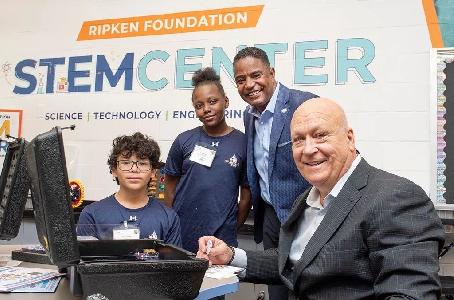Basic necessities such as shelter, food and water are typically viewed as just that. — basic. But for some communities, basic necessities come at the cost of medical treatment.
Intelehealth CEO Neha Verma has witnessed with the issue of a health trap — being forced to decide between acquiring basic needs such as food and water or getting expensive medical treatment — up close in her hometown of Mumbai, India.
In 2016, Verma, along with cofounders Soumyadipta Acharya and Amal Afroz Alam, created Intelehealth with the intent to address this lack of accessibility. Intelehealth operates in the telemedicine space and provides a web and mobile app that improves access to healthcare for remote and underserved communities.
“As cofounders, we ourselves had been acutely aware of this problem,” Verma said. “Both my parents are doctors, so I’ve seen the problem firsthand. When we went out into these communities, we saw just how much people had to travel and how much money they had to spend to access the kind of basic healthcare that you and I take for granted.”
Intelehealth, which is headquartered in Baltimore and is an alum of Johns Hopkins’ Social Innovation Lab, recently launched a crowdfunding campaign with the goal of raising $15,000.
Our mission: Get quality healthcare in places where there is no doctor. Support us 👉https://t.co/KikILTG84A pic.twitter.com/R15z4nJFMK
— Intelehealth (@IntelehealthOrg) September 16, 2019
Verma said the company plans to use the funding from the campaign to add more health workers to the platform and further develop the app. Already having established networks in Syria, Haiti, the Philippines and Mumbai, the team is looking to further expand the app’s outreach to more countries.
Verma and the cofounders, who joined together at Johns Hopkins University, came up with the idea for the technology once they noticed how people were becoming more reliant on mobile devices for everyday tasks.
“You’d use Uber for transportation [and] you’d use an app to get your food,” Verma said. “Mobile devices and mobile technology were really everywhere, but it still hadn’t reached the last mile communities. That’s what motivated us to start Intelehealth.”
Intelehealth’s functions are built around a digital assistant that is meant to guide health workers through tasks ranging from basic checkups to infectious disease management.
“Think of it like Alexa, but for community health workers,” Verma said. “The health worker can use the assistant in the platform to provide health services in their communities.”
Health workers can also use the app to connect with real world experts to learn how they can improve their primary care service. Intelehealth partners with health networks to provide the app for health workers in their respective communities.
“These are typically organizations like nonprofit groups or hospital groups that run existing health programs, or they have an existing footprint,” Verma said
Intelehealth also provides the onboarding and training for health workers who will use the platform.
In the early stages, Verma and her team were recruiting health workers and setting up health programs by themselves. The business model altered over the last two years as Intelehealth has shifted to a business-to-business approach, working closely with other grassroots organizations.
Heading into the 2020s, Verma and the team have ambitious goals for Intelehealth, driven by an unchanging desire to achieve more expansive healthcare.
“Our aim is to provide health services for one million lives with our platform by 2023,” Verma said. “Success for us means that the Intelehealth app and assistant is in the hands of as many health workers as possible so that they are able to provide the best quality care to their patients.”
Join the conversation!
Find news, events, jobs and people who share your interests on Technical.ly's open community Slack

Baltimore daily roundup: The city's new esports lab; a conference in Wilmington; GBC reports $4B of economic activity

Baltimore daily roundup: Find your next coworking space; sea turtle legislation; Dali raided and sued

Baltimore daily roundup: Johns Hopkins dedicates The Pava Center; Q1's VC outlook; Cal Ripken inaugurates youth STEM center


